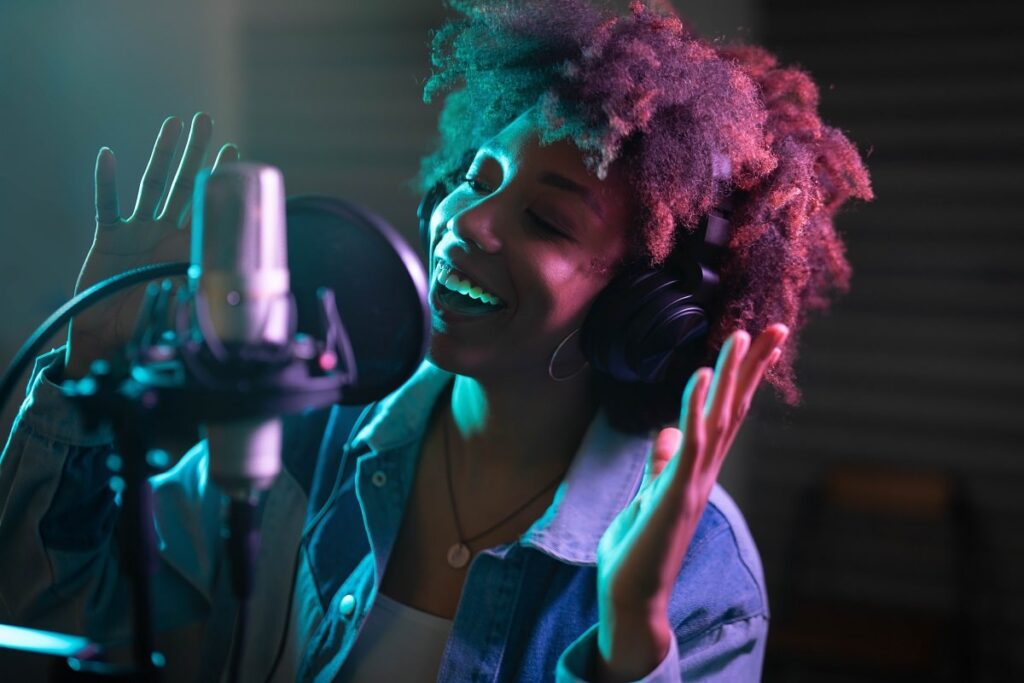The music industry is more competitive than ever, and standing out in a crowded space takes more than just talent. Behind every successful artist is a team of professionals dedicated to promotion—strategically building their brand, growing their fanbase, and getting their music heard. Whether you’re an aspiring professional or simply curious about how the industry works, understanding the world of music promotion opens up a wide range of career possibilities.
In this article, we explore the essential strategies used in music promotion, the top job roles involved, and the current trends shaping the future of the industry.
Why Music Promotion Matters
Music promotion is the bridge between an artist’s work and their audience. It involves a mix of marketing, branding, media outreach, and content creation—all designed to help music reach the right ears. A strong promotional campaign can launch careers, sell out concerts, and build long-term artist visibility across platforms.
Key Strategies in Music Promotion
Effective music promotion combines traditional outreach methods with modern digital tools. Here are some common strategies used by professionals in the field:
- Building media relationships: Engaging with press, blogs, podcasts, and radio stations to increase coverage.
- Digital marketing campaigns: Leveraging platforms like YouTube, Instagram, TikTok, and Spotify to target specific audiences.
- Email marketing & newsletters: Keeping fans updated on new releases, tour dates, and exclusive content.
- Influencer and fan engagement: Collaborating with influencers and superfans to organically spread the word.
- Live event promotion: Boosting visibility through concerts, tours, and music festivals.
- Brand collaborations: Partnering with companies to expand reach and create unique marketing experiences.
These strategies often overlap, and many professionals in music promotion specialize in combining them to maximize impact.
Top Roles in Music Promotion
The music promotion landscape is filled with exciting roles that blend creativity, communication, and business savvy. Some of the most in-demand jobs include:
- Publicist – Shapes and maintains the public image of artists through media coverage, press releases, and interviews.
- Marketing Manager – Plans and oversees promotional campaigns for music releases, tours, or artist branding.
- Social Media Coordinator – Manages online presence, fan interactions, and content across platforms.
- Talent Scout (A&R) – Finds new artists and helps develop their potential within the music industry.
- Music Journalist – Writes reviews, interviews, and news pieces that shape public perception and spotlight talent.
- Event Coordinator – Organizes concerts and promotional events to support music launches and artist exposure.
- Music Producer – Collaborates with artists in the studio to create, refine, and promote high-quality recordings.
- Music Supervisor – Matches music with film, TV, and commercials, boosting artist visibility through sync placements.
- Radio Promoter – Works to secure radio airplay and create buzz around music releases on traditional and digital stations.
- Brand Partnerships Manager – Facilitates collaborations between artists and brands to create cross-promotional opportunities.
Each role requires a unique mix of skills, from creativity and communication to data analysis and negotiation.
Current Trends in Music Promotion
The industry is evolving fast, with digital tools reshaping how music is discovered and shared. Here are some trends redefining music promotion:
- Short-form video: Platforms like TikTok and Instagram Reels have become essential tools for discovery.
- Direct-to-fan platforms: Services like Patreon and Bandcamp give artists more control over monetization and fan engagement.
- AI and data analytics: Promotion strategies are becoming more data-driven, helping marketers target audiences with greater precision.
- Influencer partnerships: Collaborating with social media creators can quickly amplify a song’s reach.
- Personalized marketing: Email campaigns, playlist placements, and even merch drops are becoming more tailored to fan behavior.
Professionals who stay ahead of these trends are better positioned to help artists succeed in a fast-paced market.
Conclusion
Music promotion jobs are vital to the success of artists in today’s ever-changing music landscape. Whether you’re drawn to media, events, social media, or talent discovery, this field offers a wide range of exciting career paths. By understanding the key strategies, roles, and trends shaping the industry, aspiring professionals can carve out their place in this dynamic and rewarding sector.
From helping an artist go viral to planning a nationwide tour, music promotion is where creativity meets impact—and there’s never been a more exciting time to be part of it.
Key Takeaways:
- Music promotion connects artists with audiences and drives visibility across platforms.
- Effective strategies include media outreach, digital campaigns, influencer engagement, and live events.
- Key roles in music promotion range from publicists and marketers to social media coordinators and radio promoters.
- Digital tools like TikTok, Spotify, and AI-driven analytics are shaping how music is marketed today.
- Trends like short-form video, direct-to-fan platforms, and personalized marketing are becoming industry standards.
- Careers in music promotion require a mix of creativity, communication, and marketing know-how.
- Staying current with industry trends is essential for long-term success in music promotion roles.
If you are passionate about music and marketing, consider exploring these exciting career paths to make a meaningful impact in the industry. To further enhance your skills and knowledge in music promotion and entertainment, consider enrolling in the “NYU Business of Entertainment” online course and certificate program.








